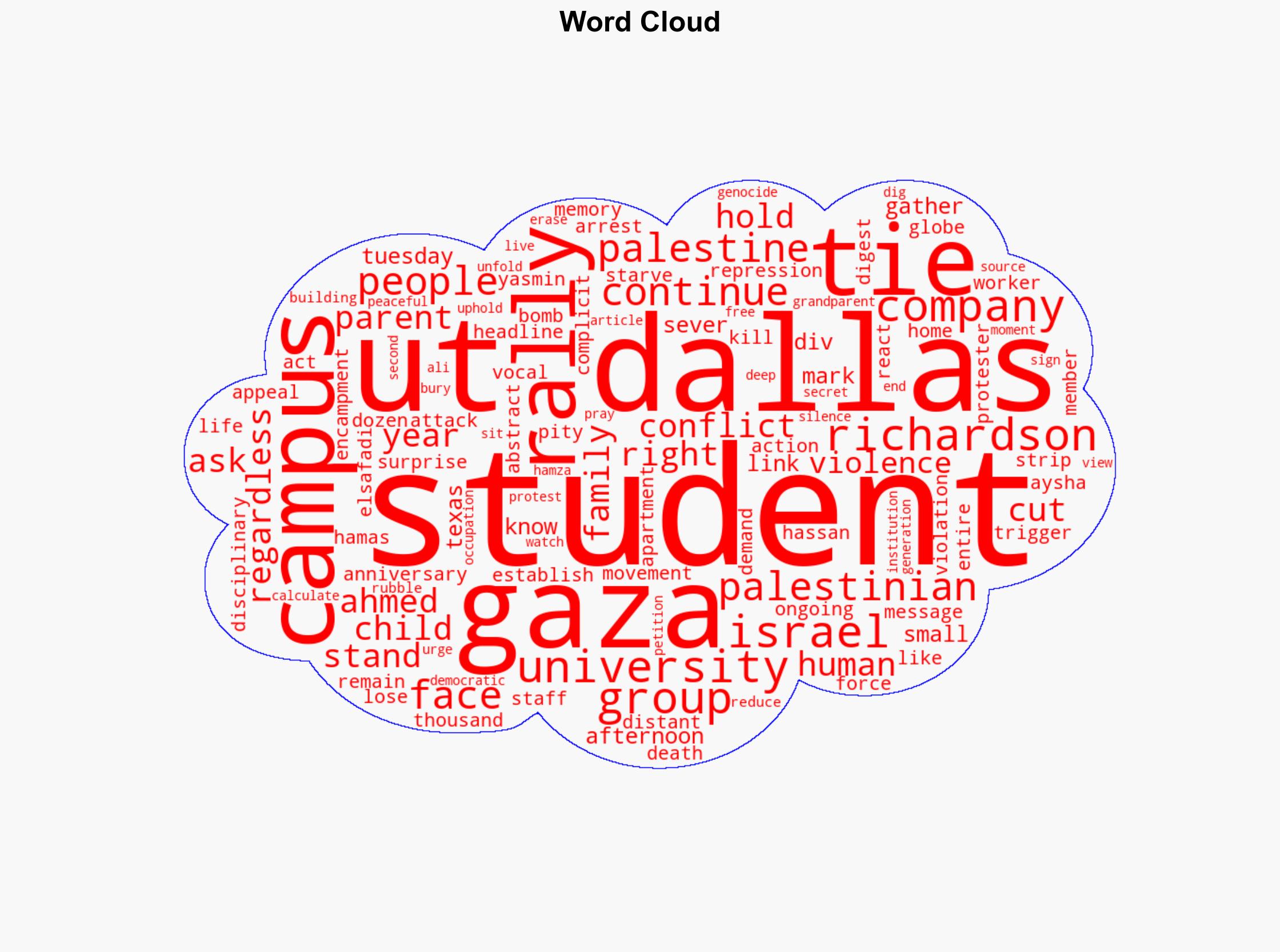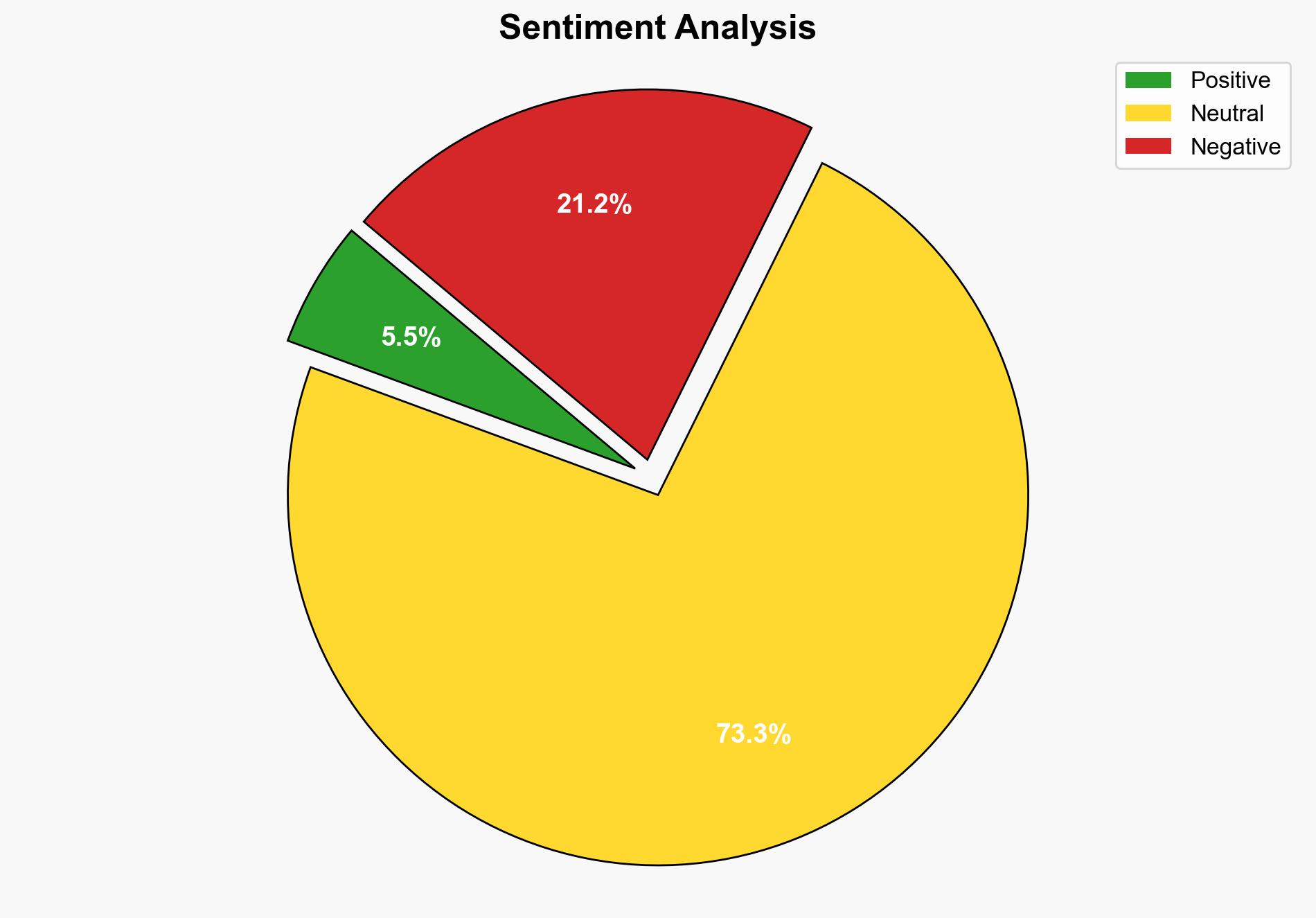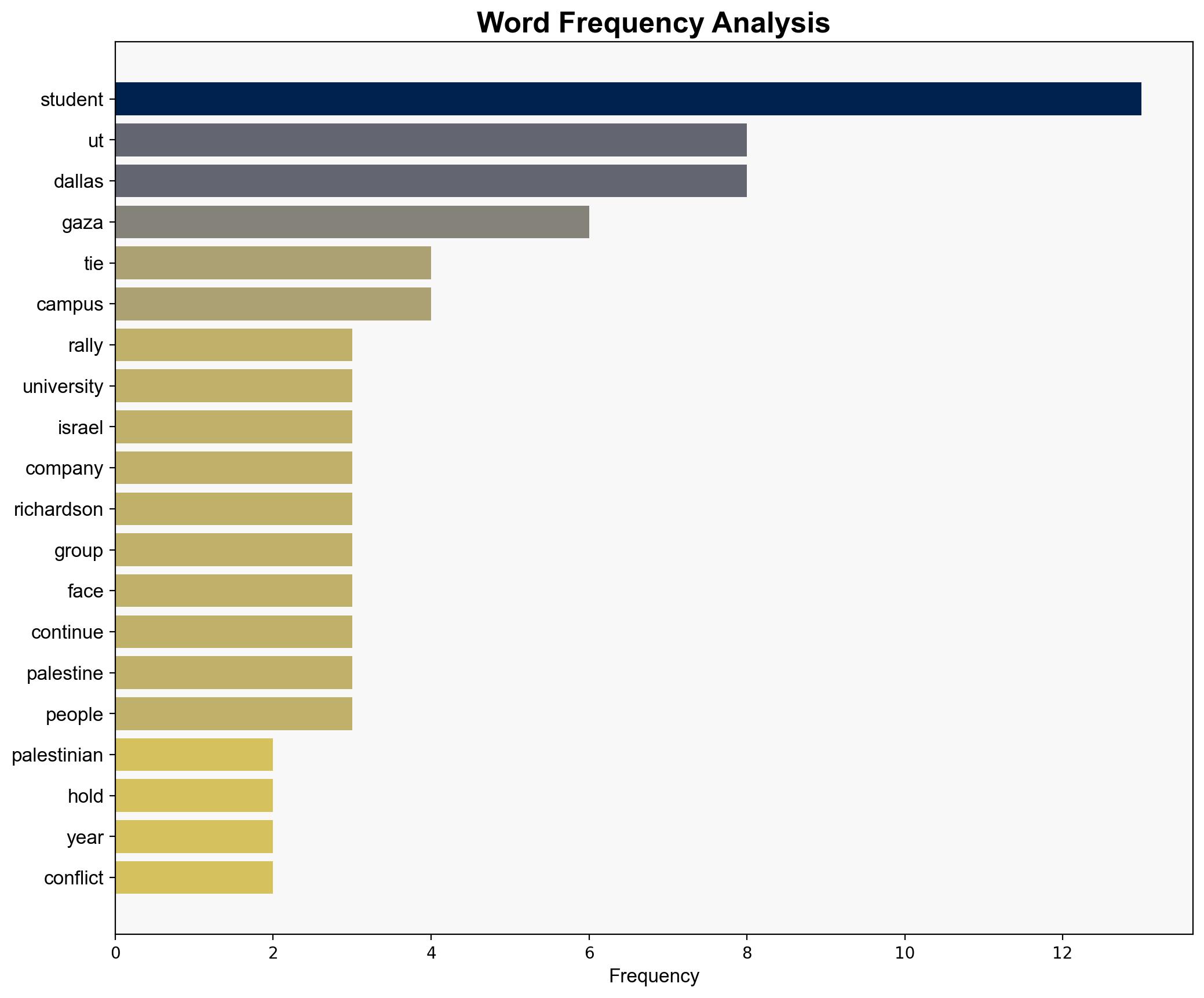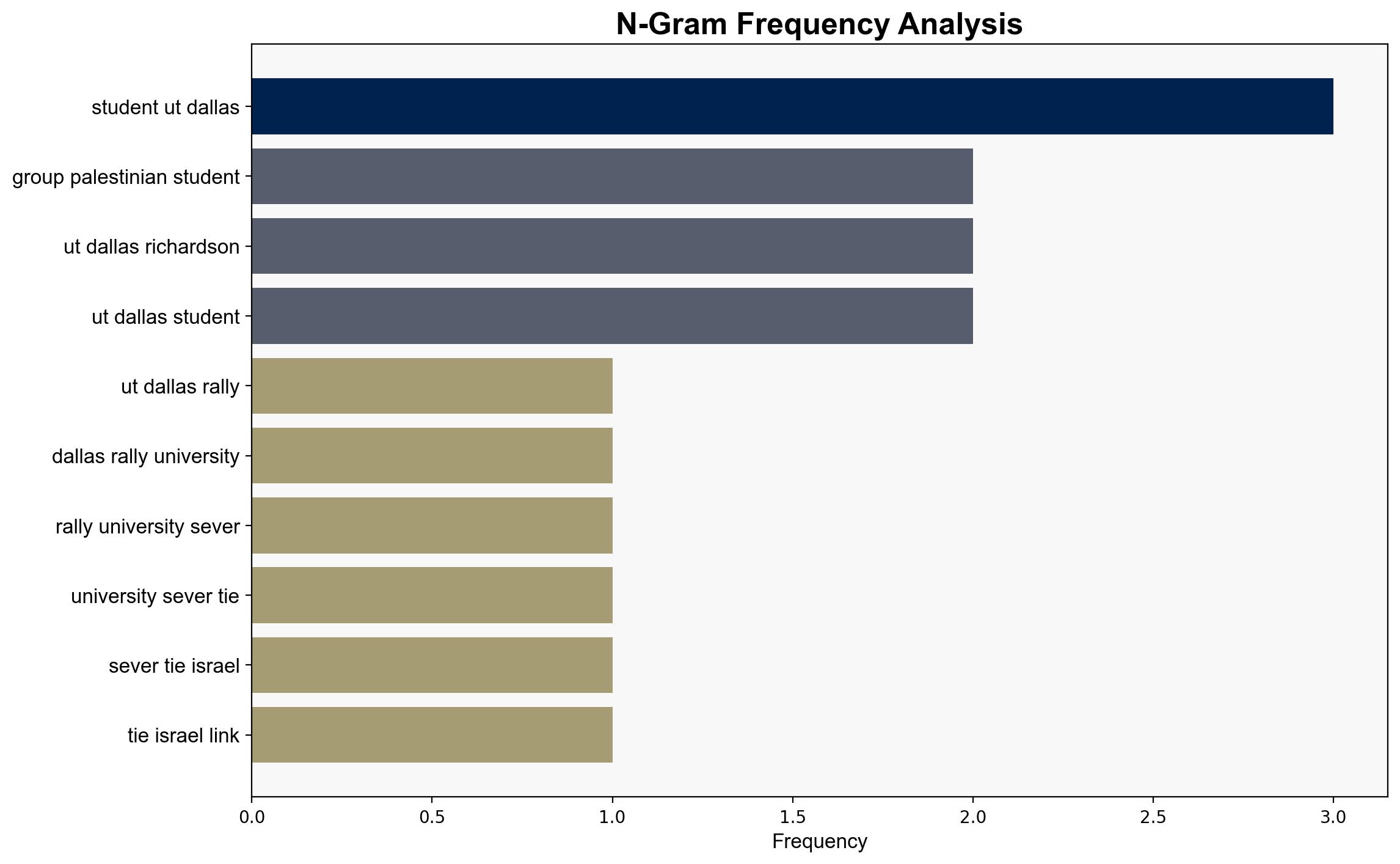Students at UT Dallas rally for university to sever ties with Israel-linked companies – FOX 4 News
Published on: 2025-10-08
Intelligence Report: Students at UT Dallas rally for university to sever ties with Israel-linked companies – FOX 4 News
1. BLUF (Bottom Line Up Front)
The most supported hypothesis is that the student protest at UT Dallas represents a broader trend of increasing activism on college campuses regarding international human rights issues, specifically concerning the Israeli-Palestinian conflict. Confidence level: Moderate. Recommended action: Monitor similar movements across other universities to assess potential for widespread activism and its impact on university policies and corporate partnerships.
2. Competing Hypotheses
1. **Hypothesis A**: The protest at UT Dallas is an isolated event driven by a small group of students with personal connections to the conflict, unlikely to influence university policy or broader public opinion.
– **Supporting Evidence**: The protest involved a small group of Palestinian students and was localized to the UT Dallas campus.
– **Contradictory Evidence**: The protest aligns with a global trend of increasing activism on university campuses regarding the Israeli-Palestinian conflict.
2. **Hypothesis B**: The protest is part of a growing movement among university students advocating for human rights and ethical corporate practices, potentially influencing university policies and corporate partnerships.
– **Supporting Evidence**: The protestors’ demands reflect broader calls for ethical considerations in university investments and partnerships.
– **Contradictory Evidence**: The university’s response, including potential disciplinary actions, suggests limited immediate impact on policy.
3. Key Assumptions and Red Flags
– **Assumptions**:
– Hypothesis A assumes limited student engagement beyond the initial protest group.
– Hypothesis B assumes that student activism will lead to tangible policy changes.
– **Red Flags**:
– Potential bias in underestimating the influence of student activism.
– Lack of data on the university’s historical response to similar protests.
4. Implications and Strategic Risks
– **Patterns**: Increasing student activism on human rights issues may lead to reputational risks for universities and their corporate partners.
– **Cascading Threats**: Potential for escalation into larger movements if similar protests occur at other universities.
– **Geopolitical Dimension**: Aligns with global discourse on corporate responsibility and human rights.
– **Psychological Dimension**: Heightened emotional engagement among students with personal ties to the conflict.
5. Recommendations and Outlook
- Monitor similar protests at other universities to gauge the potential for a broader movement.
- Engage with university leadership to understand their stance and potential policy shifts.
- Scenario Projections:
– **Best Case**: University engages in dialogue with students, leading to increased awareness and minor policy adjustments.
– **Worst Case**: Protests escalate, causing significant reputational damage and financial implications for university partnerships.
– **Most Likely**: Continued localized protests with gradual influence on university policies.
6. Key Individuals and Entities
– Aysha Ahmed
– Yasmin Hassan
– Ahmed Elsafadi
– Ali Hamza
7. Thematic Tags
national security threats, human rights activism, university protests, geopolitical impact




